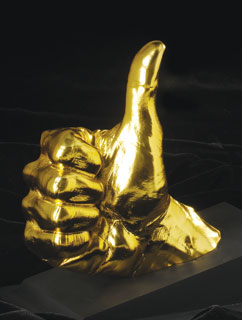News-Gazette Report on My Ebertfest Panel
Posted on April 25, 2010 at 9:28 am
Champaign’s News Gazette wrote a nice piece about our panel discussion on “Synecdoche, New York” with writer-director Charlie Kaufman. Reporter Melissa Merli called it “perhaps the liveliest post-screening discussion so far.”
said he explores themes in which he’s interested and that are going on in his life.
“It gets complicated and messy,” he said. “I usually don’t have an outline unless I have to pitch. I try to keep it honest and emotionally kind of naked.”
During the audience Q-and-A, Roger Ebert, who lost his speaking voice due to complications following surgeries for thyroid cancer, had his wife, Chaz, ask the Kaufman panel to discuss the film from the aspect of life and death. The critic said he watched “Synecdoche” at a time of illness and that it “enormously helped” him understand his life.
Kaufman said it was very meaningful for him to hear that. The writer-director also said the most any writer in general can offer as a creative person is to be themselves and to be as honest as they can be “because maybe then you can bridge a distance between you and other people” and make them feel less alone.
“We should recognize we are not in opposition to one another,” Kaufman said. “I think we live in an alienating culture that puts people at odds with each other. To what end, I don’t know.
“Worry about illness and missed opportunities and missed connections with people — that’s what I tried to put in the movie.”


